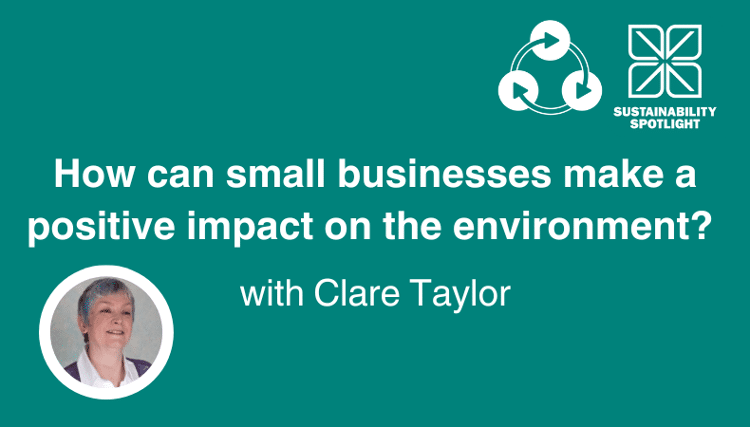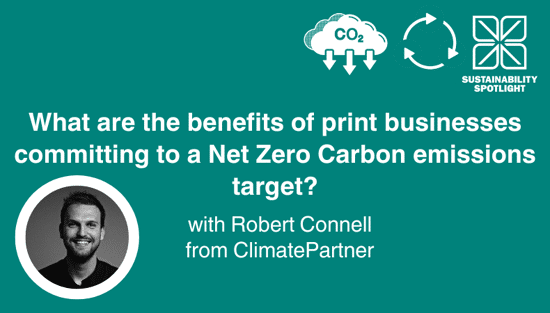How can small businesses make a positive impact on the environment?

FESPA’s Online Marketing Manager, Kelley-Ann Young Kong speaks to Clare Taylor from Clare Taylor Consulting about how businesses can still make an impact on the environment and how even small businesses can make a difference as well as looking at the importance of “thinking global and acting local.”
Please visit Sustainability Spotlight to discover more online content where we speak to industry experts about Sustainability where you can discover business opportunities to reduce, reuse and recycle materials and improve your knowledge.
For more information about Clare Taylor Consulting and her services visit here: http://www.clare-taylor-consulting.co.uk/
Topics
Recent news

What are the benefits of print businesses committing to a Net Zero Carbon emissions target?
We speak to Robert Connell, Senior Commercial Sustainability Manager at ClimatePartner who who offer solutions along the net zero cycle to support business’s effort in corporate climate action. In this discussion we discuss the importance and the process and benefits of businesses committing to a Net Zero Carbon emissions target.

6 Sustainable Printing Practices Changing the Game in Textile and Apparel Decoration
The textile industry is shifting towards sustainability. Innovations like waterless and digital printing, eco-friendly inks, and recycled materials are reducing waste. AI and automation optimise production, while circular models promote reuse. Consumer demand for transparency drives this change, making sustainable practices essential for future-focused brands.

Sustainability in Production Print: Advancing Practices in Wide Format, Textiles, and Software
As sustainability continues to take centerstage across industries, the production print sector is making massive strides in integrating eco-conscious practices. From wide format to textile applications, with the growing reliance on advanced production software, the space is evolving to meet environmental goals as well as consumer demand for sustainable products.

Why must the print industry recognise software and material innovation
Laurel Brunner argues that the printing industry must recognise the value of both software and material innovation, and be willing to pay for it. Software, though intangible, drives efficiency and reduces carbon footprints. While materials science currently dominates, R&D costs are inherent in all advancements. Paying a premium ensures continued progress, benefiting the industry's evolution and sustainability.